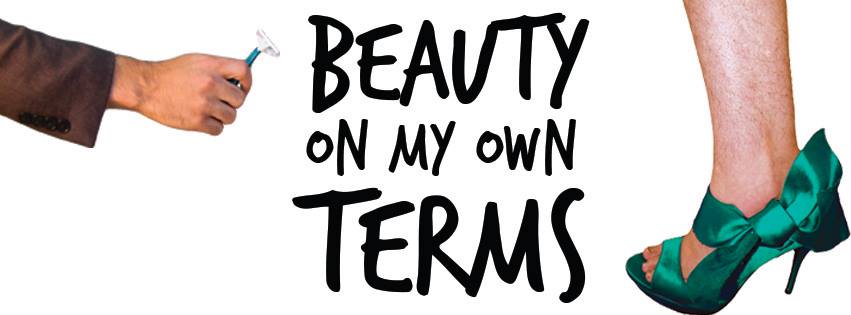Beauty on my own terms
Some Loyola women make the choice to stop shaving — and they don’t care what anybody else thinks
September 3, 2014
It started when she was 11-years-old.
She was at school when another girl ran up to her, looked at her legs, and said, “Your legs are gross. You need to start shaving.”
From that point on, Caroline Stallard, history and biology senior, did not go more than three days without shaving her legs. When she did go that long, she said, she wouldn’t leave the house unless she was wearing jeans.
“I was in fourth grade, and everyone else had already started shaving,” Stallard said. “I was afraid to do it myself. I would go to my friend’s houses and have them help me shave my legs because I didn’t want my mom to know.”
Stallard spent the next 10 years going out of her way to remove her body hair, but it wasn’t until recently that she started thinking about why she took the time to shave, and made the decision to stop.
“I started having critical thoughts about the idea of aspiring to look pretty,” she said. “I definitely think it is worthwhile to work on your appearance, but it just wasn’t something that made me feel more attractive.”
Stallard is not alone in this decision, neither globally nor at Loyola.
Stallard, Stephanie Benitez, psychology junior, and Katherine Richard, English writing senior, are just a few among an entire group of women who have changed their shaving habits in a move meant to restore the power of choice to its rightful owner.
Although Benitez said that she never consciously made the choice to stop shaving, and instead attributed the unshaven state of her legs to laziness, she said there shouldn’t be any sort of standards for shaving.
“It’s nothing that I feel women should or shouldn’t do, or men should or shouldn’t do,” Benitez said. “It’s an appearance thing.”
Richard, who hasn’t shaved in more than two years, said she had other, more painful reasons for giving the razor the boot.
“I sliced up my leg pretty badly, and one leg was shaven, while the other was not,” Richard said. “I went weeks waiting for the wound to heal, then I realized that if I could have one leg unshaven, I could have both. I thought, ‘What the hell am I shaving for?’”
In fact, Richard’s decision to take matters into her own hands is what Stallard calls her motivation to stop shaving.
“I’d thought about it before,” Stallard said. “But Katie made me realize that it was actually OK.”
Now, two months after stepping away from the blade, Stallard said she doesn’t feel any less pretty, although she admits that it hasn’t been a seamless transition between routines.
In the shower, she’ll reach for a razor after shampooing, she said, only to realize that she no longer has to perform that certain chore. She’ll turn into the razor aisle at the grocery store, just to swerve back out of it after remembering that she no longer has to spend money on that sort of product.
These are realizations, Stallard said, that she is happy to have.
“I feel like there’s kind of a standard of femininity that’s been defined by men. Whenever I talk about this, I ask people, ‘How long do you even think women have been shaving?’ and ‘How do you think this started?’ No one has an answer,” she said.
Matthew Holloway, sociology junior, said that he supports women’s decisions to stop shaving in light of the fact that women have been told by society what is right for them.
“There are so many outlets telling you the same story, that a part of hyper-femininity is stripping the body hair,” he said. “It has to be really complicated for a girl, especially in those years when reaching puberty.”
Despite the fact that male expectation is something all the women cited as an unnecessary pressure, they admitted that women can also play a strong role in the pressure to conform to feminine stereotypes, and that woman-on-woman hate is a problem of its own.
Richard said that her mother has been the only person to call her legs gross, while Stallard said that other women are often a lot more intrigued than men, asking questions like, “Don’t you feel gross?” or “Is it going to get a lot longer?”
Benitez said she faced this problem as well.
“In high school, if a girl went a while, the other girls would be like, ‘Man, so and so has really gone a long time without shaving her legs,” Benitez said.
But whatever the reasons for stopping shaving, and whatever the pressures that made them start shaving in the first place, Stallard said the most important thing to remember is that it is the individual’s choice, and no one else’s.
“I don’t want to be policing other women’s bodies and telling them not to shave. At the same time, I don’t think we should instill hairlessness as a value in our younger girls, when the fact of reality is that their bodies are covered in hair,” Stallard said. “I’m trying to define my own femininity and feel beautiful on my own terms.”









Rae Ann DiMaggio • Sep 9, 2014 at 6:35 pm
If she does not care why is she putting it in the Maroon. This is disgusting. Shaving is just a part of grooming. The world has gone nuts.